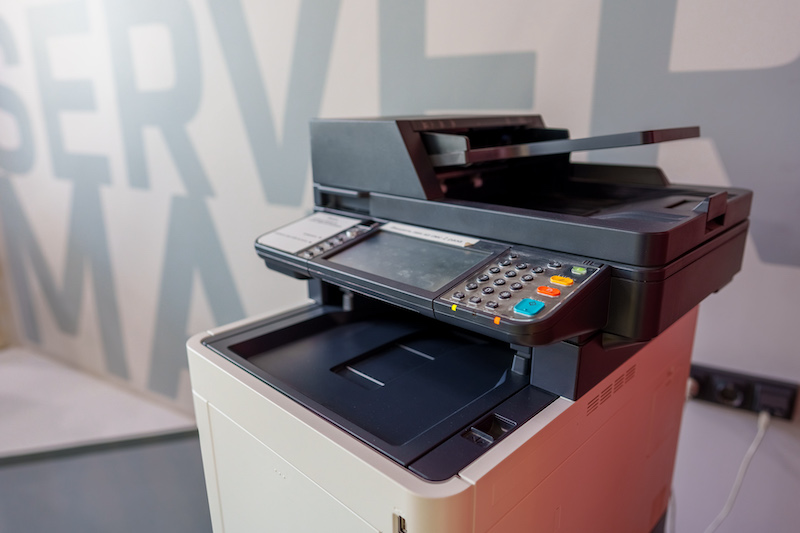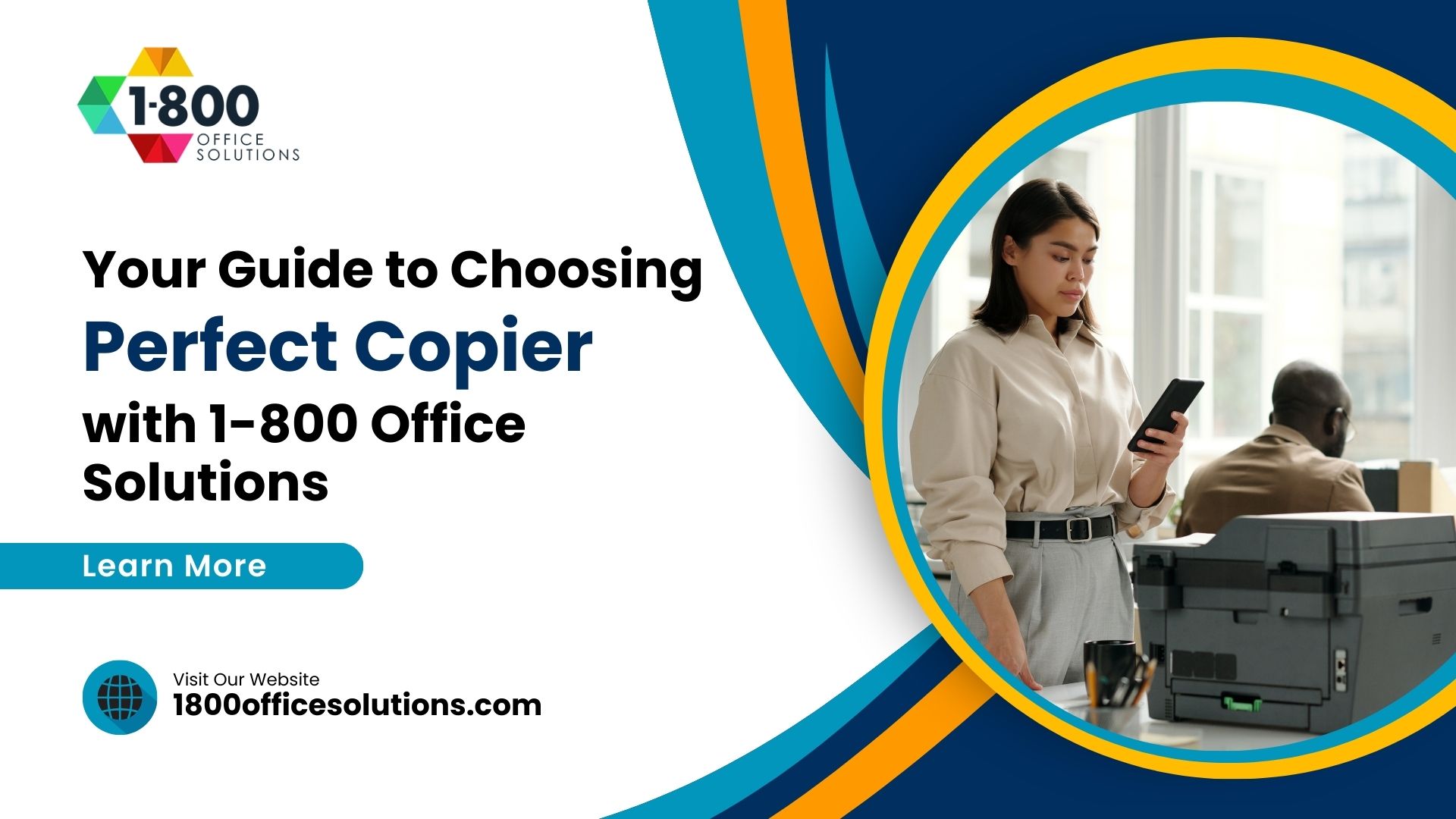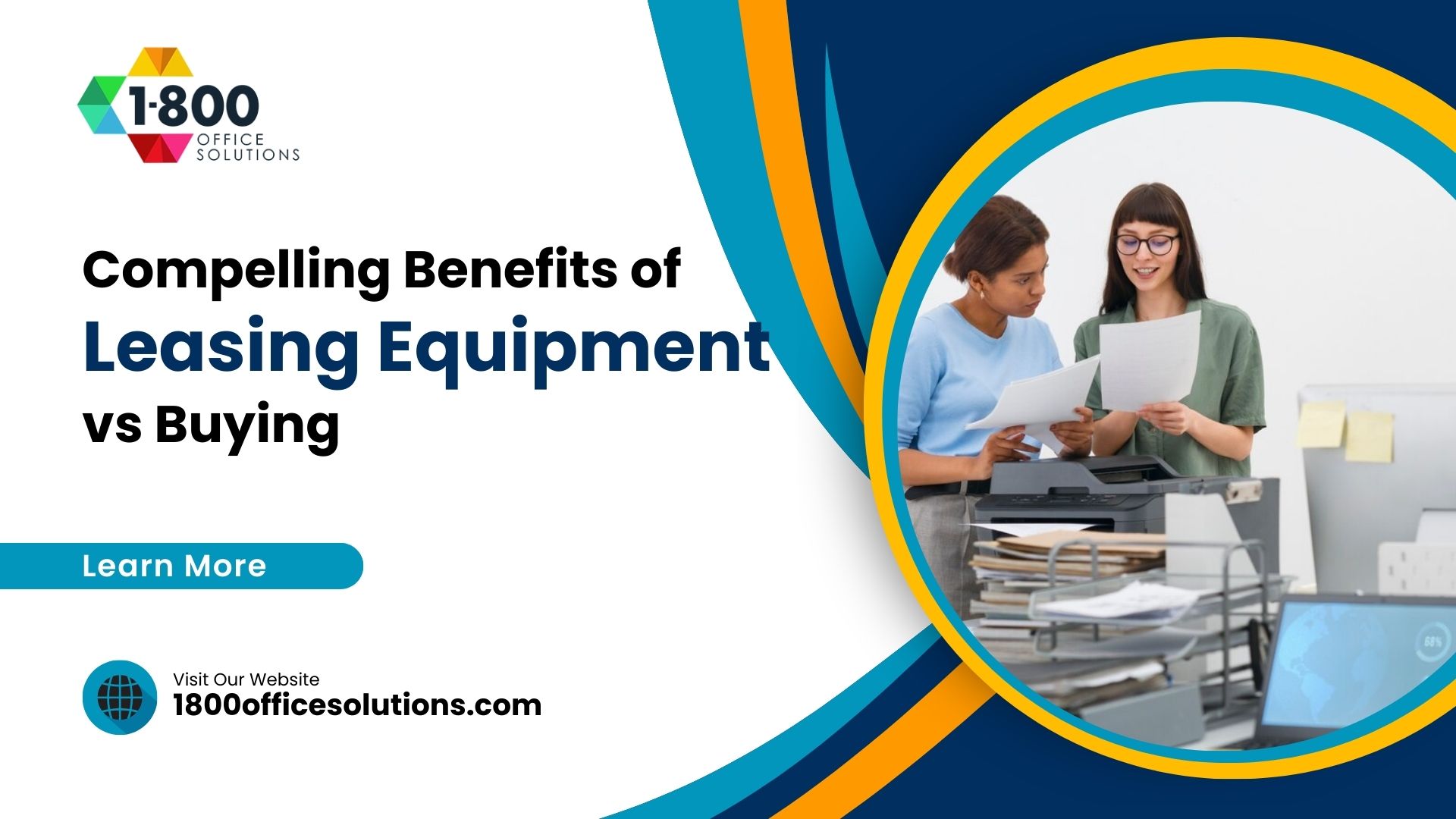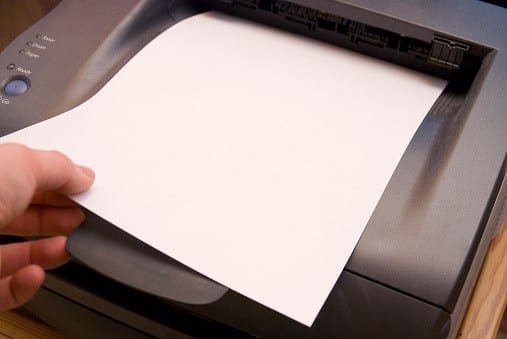The Future of Business: Why Copy Machines for Lease Are Taking Over!
Introduction
In the rapidly evolving world of business, the way companies operate and manage their resources has seen a significant shift. The changing landscape of business operations is moving towards more flexible and cost-effective solutions. One such solution that has gained immense popularity in recent years is the concept of leasing. Whether it’s office equipment like a copier and printer or larger machinery, businesses are now more inclined to lease rather than purchase. In this blog post you’ll learn future of copy machines for lease and well as how it impacts the business.
The Evolution of Business Models
- Traditional Business Models: Historically, businesses preferred to own assets. This meant large capital expenditures upfront and the responsibility of maintenance. Owning a xerox machine or other office equipment was seen as a long-term investment.
- Modern Business Models: Today, with the advent of technology and the need for agility, businesses are leaning towards models that offer flexibility. The role of technology in shaping these strategies cannot be understated. For instance, the need for a high ppm (pages per minute) printer might be a temporary requirement for a project, making leasing a more viable option. The transformative power of technology in businesses has made leasing not just a financial decision but also a strategic one.
What is Copy Machines for Lease?
Copy machine leasing refers to an arrangement where businesses or individuals obtain a copy machine without purchasing it outright. Instead of making a large upfront payment to buy the machine, the lessee (the business or individual using the machine) agrees to make regular payments to the lessor (the owner or leasing company) for the right to use the machine for a specified period. Here’s a more detailed breakdown:
- Contractual Agreement: The lessee and lessor enter into a contractual agreement, known as a lease agreement, which outlines the terms and conditions of the lease. This includes the duration of the lease, monthly payment amounts, maintenance responsibilities, and other specifics.
- Duration: Leases can be short-term or long-term, ranging from a few months to several years. At the end of the lease term, the lessee often has the option to purchase the machine, return it, or renew the lease.
- Maintenance and Repairs: Many lease agreements include maintenance and repair services. This means that if the machine breaks down or requires servicing, the lessor is responsible for fixing it, often at no additional cost to the lessee.
- Flexibility: Leasing provides businesses with flexibility. If a company’s needs change, they can upgrade or downgrade to a different machine when the lease term ends. This is especially beneficial given the rapid technological advancements in office equipment.
- Financial Benefits: Leasing can offer financial benefits. It allows businesses to conserve capital since there’s no need for a large upfront purchase. Lease payments can also be tax-deductible as a business expense in many jurisdictions.
- End-of-Lease Options: At the end of the lease term, businesses typically have several options. They can choose to buy the copier outright, return it and lease a new one, or simply end the lease and return the machine.
In essence, copy machine leasing is a cost-effective and flexible alternative to purchasing, allowing businesses to access the latest technology without the financial burden of ownership.
Why Leasing is the Future
- Cost-effectiveness: Leasing, be it a printer rental or any other equipment, often comes without the hefty upfront costs. Businesses can better manage their cash flows and allocate resources to other pressing needs.
- Flexibility and Adaptability: As business needs change, so can the equipment. If a company’s printing needs increase, they can easily upgrade to a better copier without the hassle of selling the old one.
- Environmental and Sustainability Angle: Leasing promotes the reuse of equipment. Once a lease term ends, the equipment can be leased to another business, promoting a circular economy and reducing waste. This is especially true for electronic office equipment that can have environmental implications if not disposed of properly.
The Alibaba Case Study
Alibaba, a giant in the e-commerce world, offers a unique perspective on the future of business. Their business model is not just about selling products but creating an ecosystem where various stakeholders, including sellers, buyers, and service providers, coexist and thrive.
Overview of Alibaba’s Business Model
Alibaba’s success isn’t just about providing a platform for buying and selling. It’s about understanding the needs of its users and adapting continuously. Their approach to business is holistic, considering every aspect of commerce, from online transactions to logistics.
How Alibaba’s Approach Represents the Future of Business
Alibaba’s success lies in its ability to adapt and innovate. Their business model is a testament to the fact that the future belongs to those who can quickly pivot their strategies based on market needs. Their use of technology and data to drive decisions is a lesson for all businesses.
Lessons from Alibaba’s Success
- Adaptability is key. In a world where market dynamics change rapidly, the ability to adapt ensures longevity.
- Investing in technology and data-driven decision-making can significantly boost productivity.
- Building an ecosystem rather than just a product or service is the way forward. It ensures that the business stays relevant and continues to add value to its users.
As the business world evolves, so do the strategies companies employ. Leasing, with its myriad benefits, is becoming the go-to solution for many, and the success of companies like Alibaba underscores the importance of adaptability and innovation in today’s business landscape.
Benefits of Leasing Copy Machines
The decision to lease a copier or buy one outright has been a topic of debate for many companies. However, with the evolution of business needs and the rapid advancement in technology, leasing has emerged as a preferred choice for many. Here’s why:
- Cost Savings for Businesses: One of the primary reasons businesses opt for a copier lease is the significant cost savings. Instead of a hefty upfront cost of buying a multi-function copier or a Canon ImageRunner, companies can spread out the payments over the lease period. This approach aids in better cash flow management and allows businesses to allocate funds to other essential areas.
- Access to the Latest Technology: The world of printers and copiers is continuously evolving. With a copier rental, businesses can always have the latest Canon ImageRunner Advance or Xerox Versalink without the worry of their equipment becoming obsolete. This ensures that they always have the best tools to meet their workflow needs.
- Maintenance and Support Benefits: One of the significant advantages of a copier lease is the comprehensive maintenance and service plan that comes with it. Whether it’s a minor issue with the Canon’s MFP or a more significant problem with the B&W Versalink C405, the leasing company usually has got you covered. This ensures that the office copier is always running smoothly, reducing downtime and ensuring hassle-free operations.
Challenges and Considerations
While leasing offers numerous benefits, it’s essential to be aware of the potential pitfalls and considerations:
- Understanding Lease Agreements: A lease agreement is a binding contract. It’s crucial to understand the terms, especially concerning the end of your lease period, buyout options, and any penalties for early termination.
- Evaluating the Total Cost of Ownership: While the monthly leasing rates might seem attractive, it’s essential to calculate the total cost of ownership over the lease term. This includes additional costs like service and maintenance, ink cartridges, and any other hidden charges.
- Ensuring the Right Fit for Business Needs: Not every office printer or multi-function printer will be the right fit for every business. It’s essential to assess the business’s printing needs, considering factors like pages per minute, print quality, and whether a color multi-function or monochrome printer is more suitable.
What People Also Ask
Why are businesses increasingly opting for leasing?
Leasing, especially current copier leasing programs, offers flexibility, cost-effectiveness, and access to the latest technology without the commitment of ownership.
What are the potential pitfalls to watch out for?
Hidden costs, stringent lease terms, and getting locked into a long-term contract with outdated equipment are some concerns.
How does leasing align with sustainability goals?
Leasing promotes a circular economy. Instead of disposing of old equipment, it can be refurbished and leased again, reducing waste and promoting sustainability.
Conclusion
The trend towards leasing, be it an office copier or any other equipment, is set to grow. The benefits far outweigh the challenges, especially when businesses make informed decisions. As technology continues to evolve at a breakneck pace, the need for flexibility and adaptability will drive the leasing trend even further.
In the future, we can expect other sectors, beyond just office equipment, to adopt this model. The convenience, combined with the financial benefits and sustainability angle, makes leasing an attractive proposition for modern businesses. As the business landscape continues to evolve, leasing will undoubtedly play a pivotal role in shaping the future of business operations.
Looking ahead, it’s not just the realm of office equipment that will embrace this model. Various sectors are likely to see the merits of leasing. The amalgamation of convenience, economic sense, and an eco-friendly approach makes leasing an irresistible option for modern enterprises. As we navigate the ever-changing business terrains, leasing stands out as a strategy that will significantly influence the modus operandi of future business operations.












